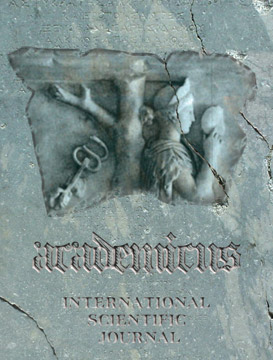Title:
Author(s):
Abstract:
The principle of human trust works in both the Anglophone and Civilian legal cultures, but does so in two opposite ways. Although not explicitly stated in either legal tradition, the element of trust is of central importance in both. The two traditions began in the medieval period, but in very different circumstances. They had entirely different understandings of what law was and the purposes for which it worked. Their modern incarnations, together with implicit attitudes toward human trust, took shape during the seventeenth and eighteenth centuries--in ways that reinforced their original differences. Their contradictory ideas of trust derived from opposing concepts of human nature: a Humanist confidence in the capacity of men as compared with a Calvinist belief in the depravity of men. Eighteenth century Continental jurists rejected religion as the educative basis of rule. Instead, they embraced an Optimistic philosophic view of human nature, expressed in the Sensus Communis. During the same period England retained a deeply established Puritan ethos. It separated Church and State but, unlike the more secular Continent, it retained an amorphous religiosity as the legitimizing basis of its rule. In Continental legal culture, the ideological and educative half of governance was emphasized. Public cultivation and learning, and the faculty of human reason, were relied on as the ultimate basis of order. By contrast, Anglophone legality, resting on an assumption of human turpitude, promised freedom—but within enforced limits. Its hierarchical Rule of Law was founded on public faith in judicial authority. The project to construct a global law brings these traditions into confrontation. A resolution reached by them will determine the meaning and importance of human trust in the global age.
Keywords:
anglophone; civilian; law; reason; faith; trust
Full Text PDF:
References:
View complete reference list, click
here
Digital Object Identifier DOI:
The article's content ©Academicus™ Anglophone and Civilian Legal Cultures: Two understandings of human trust for the global age
by
Dr. (PhD) Joseph P. Garske
is licensed under a Creative Commons
Attribution-NonCommercial 4.0 International License.
Presented:
March 2018
Included for Publishing:
June 2018
Published:
July 2018,
Volume 9,
Issue 18
Academicus International Scientific Journal is an Open Access Journal. This means that all content is freely available without charge to the user or his/her institution. Users are allowed to read, download, print, search, or link to the full texts of the articles in this journal without asking prior permission from the publisher or the author. This is in accordance with the BOAI definition of open access. Users are obliged to cite the source (Academicus International Scientific Journal) and the author, according to the international citation standards.
To learn more about the OA Policy followed by Academicus ISJ, read Journal Regulations
Academicus
International Scientific Journal
pISSN 2079-3715
eISSN 2309-1088
Address:
Sheshi i Flamurit, Rruga Muze
Al-9401 Vlorë, Albania
Tel: +355 68 60 60 555
info@academicus.edu.al
https://academicus.edu.al



 Scholar
Scholar
 Crossref
Crossref
